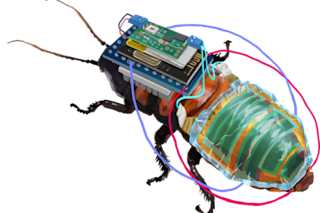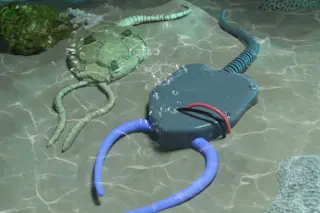Five sophisticated computer programs chatted with human examiners this weekend and tried to convince the judges that they were conversing with another human being, vying to be the first to pass the Turing Test for artificial intelligence. Although none of the programs achieved their goal of duping 30 percent of the judges, several came quite close to that threshold and all fooled at least one judge. Said organizer Kevin Warwick:
"...although the machines aren't yet good enough to fool all of the people all of the time, they are certainly at the stage of fooling some of the people some of the time" [Telegraph].
The contest draws on the ideas of British mathematician Alan Turing, who came up with a subjective but simple rule for determining whether machines were capable of thought. Writing in 1950, Turing argued that conversation was proof of intelligence. If a computer talked like a human, ...













